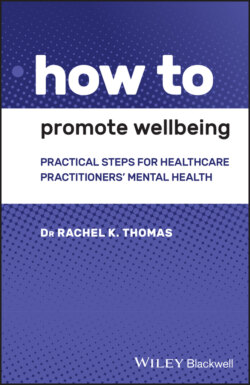Читать книгу How to Promote Wellbeing - Rachel K. Thomas - Страница 13
Problem factor: The acute and chronic stress responses
ОглавлениеAs many of us are aware, our stress responses can be acute (quicker and shorter) or chronic (over a longer timeframe). Research supports that the implications of stress can extend beyond our physical health to our mental health, too.
An acute stress response follows the perception of a stressful event, and leads to changes in the
Endocrine
Cardiovascular
Nervous
Immune
systems.11 These changes, known as the ‘acute stress response’, or the ‘fight or flight’ response, are, when short in duration, important adaptations for our survival.
Chemical cascades are generally activated (Figure 1.3) to:
Release energy stores for immediately available use
Distribute energy to tissues – such as the brain and skeletal muscles – which perform more actively during periods of acute stress
Redirect energy away from body activities such as growth, sex hormones, and digestion which are less critical for immediate survival.11
Figure 1.3 Stress response chemical cascade.13
The acute stress response directs this energy around the body to places where it is required, by the dilatation and contraction of blood vessels and by the cardiac output increasing via changes to the heart’s stroke volume and rate (Figure 1.4).12
Figure 1.4 The stress response can impact on many different body systems.14
The sympathetic nervous system stimulates the adrenal medulla to produce catecholamine such as epinephrine. The hypothalamic‐pituitary adrenocortical axis is also activated. Corticotropin releasing factor from the hypothalamus stimulates adrenocorticotropin from the pituitary gland. This stimulates cortisol secretion from the adrenal cortex.
Cortisol and catecholamines act to liberate energy sources by:
Increasing glycogen conversion into glucose
Increasing fat break down into energy sources such as glycerol and fatty acids.11
In young, healthy people, an acute stress response will more likely lead to a level of adaptation, rather than creating an actual health burden.11,13. However, in less healthy or older people, it is more likely that repeated stress responses may be damaging to their health.11
Under chronic stress, this acute response may be repeatedly activated without resolving. Given the actions listed above of the acute stress response, continuous activation may lead to physical problems such as:
Increased blood pressure
Vascular hypertrophy
Immune suppression
amongst other issues.
We know that prolonged exposure to stress is a risk factor for mental health conditions such as depression.14 Prolonged stress can also exacerbate the symptoms of conditions such as bipolar and schizophrenia.14
Exposure to stress over long periods of time is likely to affect our efficiency at work. Evidence confirms that two out of three healthcare workers report significantly high levels of work stress, according to a UK workplace stress report.15 It is clearly time to start doing something differently. Almost all of the healthcare workers – 95% – reported that the stress impacted tangibly on their lives, and almost half (47%) felt that their work‐related stresses led them to suffer anxiety.
One in two health care workers in the UK reported that work‐related stress has led to them suffering anxiety.
We use the pre‐frontal cortex (PFC) region of our brain for many tasks that our daily jobs require us to successfully perform. The so‐called ‘higher executive functions’ include planning, decision‐making, and problem‐solving. The PFC area is one of the most sensitive to stress.14 We have good research evidence that our PFC is impaired under stress, leading to decreases in functions such as working memory.16 Many of our required tasks as clinicians require the optimal functioning of our PFC, so it stands to reason that learning to manage our stress will help us be more effective in our work in various ways. When being stressed impairs our decision‐making ability, this has the potential to impact negatively on patient outcomes – thus our work stress may lead to further work stress in a negative cycle.
Reduced functioning may also be linked to behaviours we fall back on during periods of stress, such as losing self‐control, overeating, smoking, or excessive drinking.14
